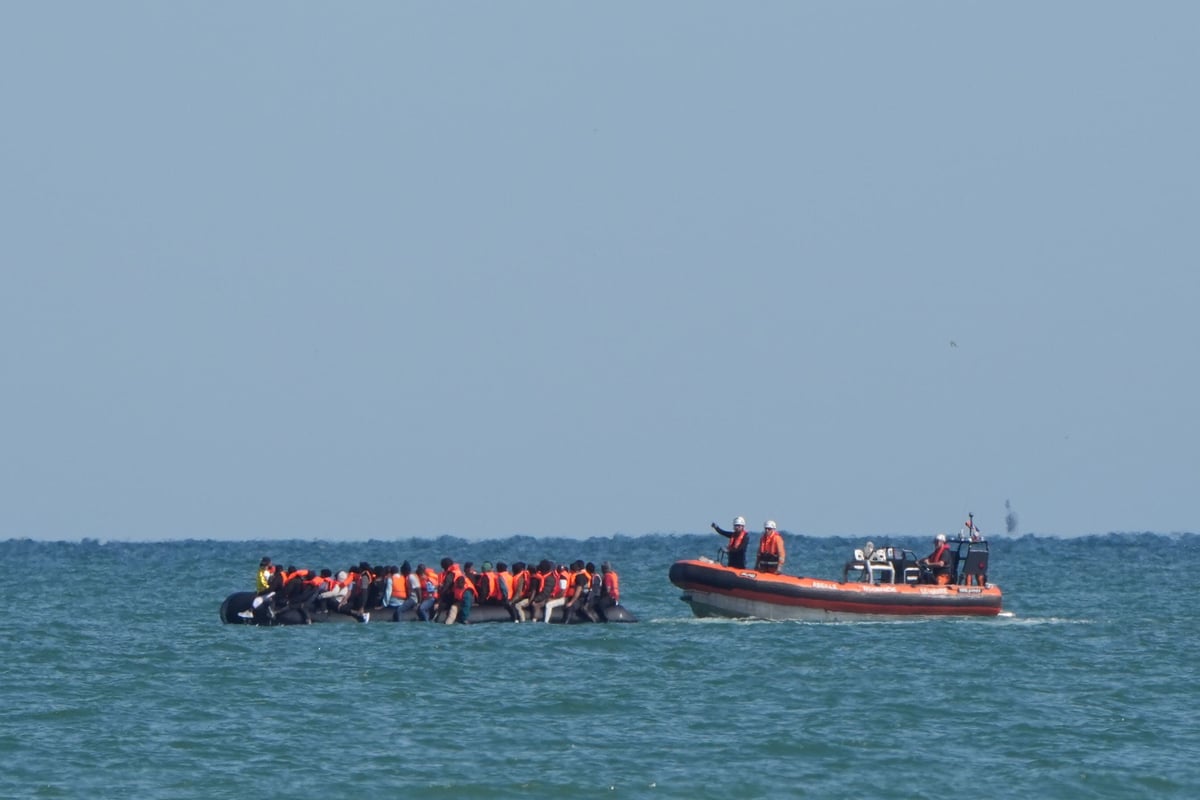New Agreement on Channel Crossings Between the UK and France
On the final day of French President Emmanuel Macron’s state visit to the United Kingdom, Sir Keir Starmer revealed a collaborative agreement aimed at addressing the pressing issue of migrants crossing the English Channel in small boats. This announcement came ahead of a Franco-British summit held at Downing Street, where both leaders emphasised that the situation surrounding Channel crossings is a “shared priority that requires shared solutions.”
The Rising Concern Over Channel Crossings
Recent statistics from the Home Office indicate a record influx of migrants, with 21,117 arrivals reported this year alone after navigating the perilous waters of the English Channel. This figure marks an alarming 50% increase compared to the same period last year, when 14,058 migrants made the crossing, and represents a 65% rise from the earlier part of 2023, which saw 12,772 arrivals. Tragically, at least nine individuals have lost their lives attempting this dangerous journey in 2023, although official records do not capture all fatalities in the Channel.
The UK government has expressed a strong desire to eliminate these crossings, citing concerns that they “threaten lives and undermine our border security.” Since data collection began in 2018, there has been a significant rise in the number of migrants arriving via small boats, with 94% of those who made the crossing subsequently claiming asylum in the UK.
The Labour Government’s Strategy
Since Labour’s ascension to power in July, the party has made it a priority to dismantle smuggling networks. This has involved enhancing enforcement measures against traffickers, including the establishment of a Border Security Command to lead efforts in strategy and intelligence sharing both nationally and internationally.
A new legislative framework is on the horizon, which aims to grant police counter-terrorism-style powers and introduce additional criminal offences targeting people-smuggling operations, pending Parliamentary approval. The government is also keen to reset its relationship with European counterparts to foster collaboration on this issue.
In February, Home Secretary Yvette Cooper announced the reallocation of £7 million to French authorities to support enforcement actions along their coastline. This funding is intended to bolster the establishment of an elite unit of officers in France focused on increasing patrols, launching an intelligence unit in Dunkirk to combat smuggling, and training drone operators to intercept crossings before they reach open water. France has also agreed to modify its regulations to enable police intervention in shallow waters, rather than requiring boats to be on land.
In tandem with these efforts, the UK government is working to deter new arrivals by cracking down on illegal employment and expediting the deportation of ineligible asylum seekers.
Details of the New Agreement
The agreement announced by the Prime Minister and President Macron includes a pilot scheme that allows for the return of migrants arriving by small boat to France. In exchange, an equal number of asylum seekers will be accepted from France to the UK. For the first time, migrants arriving in small boats may be detained and returned to France.
Individuals in France wishing to apply for asylum in the UK can do so through an online platform established by the Home Office, followed by the usual visa application process and security checks. Priority will be given to those hailing from countries where they are most likely to receive asylum, particularly individuals vulnerable to exploitation by trafficking gangs, and those with ties to the UK.
While the criteria for determining which migrants will be returned to France remain unclear, it is anticipated that the pilot will initially focus on adults, taking operational factors into account. New arrivals will continue to be processed at the Manston processing centre in Kent, where they will undergo screening before potential detention in immigration removal centres.
The basis for removal is expected to revolve around the notion of inadmissibility, citing that they have arrived from a safe country where their asylum claims can be adjudicated, as per an agreement with France. This inadmissibility rule was introduced under the 2021 immigration regulations and further enacted through the Conservative government’s Nationality and Borders Act 2022.
Reactions to the Agreement
Reactions to the new deal have been mixed, with opposition politicians expressing strong criticism. Nigel Farage, leader of Reform UK, labelled the arrangement a “humiliation” for the Prime Minister. Concurrently, Flora Alexander, executive director of the International Rescue Committee UK, stated that the agreement represents “yet another step in the wrong direction,” arguing that such policies do not prevent individuals from seeking safety; rather, they compel them into even more dangerous situations.
Enver Solomon, chief executive of the Refugee Council, also called for alternative safe and legal pathways for individuals fleeing conflict, particularly for those with family connections in the UK. He acknowledged that while the agreement was a significant first step, its implementation must uphold fairness, respect, and dignity for all asylum seekers involved.
As this situation continues to evolve, the impact of the new agreement remains to be seen, with many advocating for more humane and effective solutions to the complex issue of migration across the English Channel.

